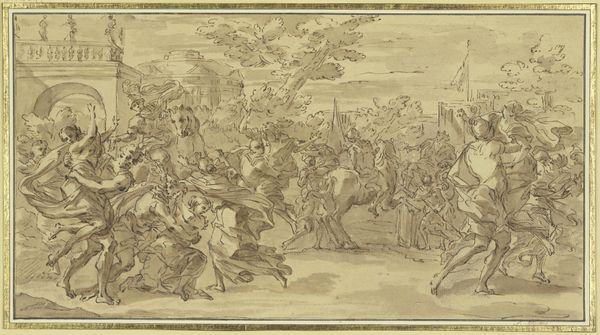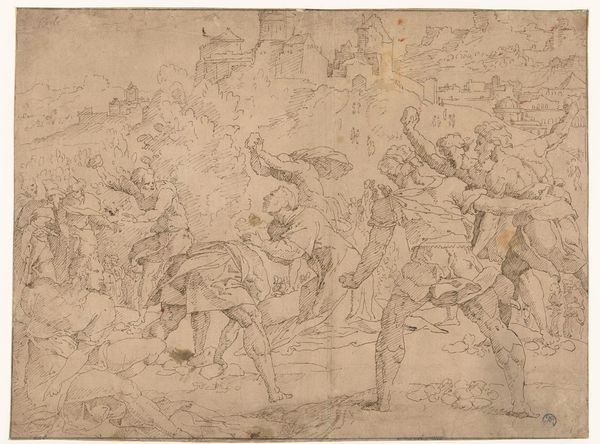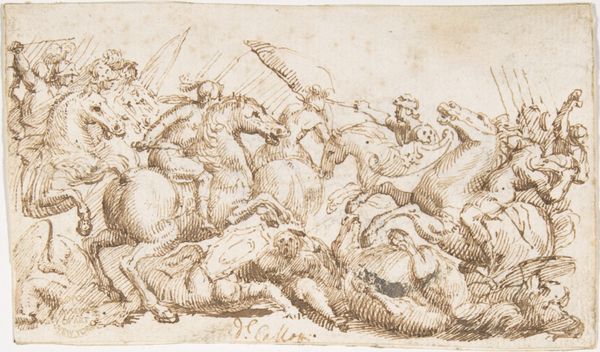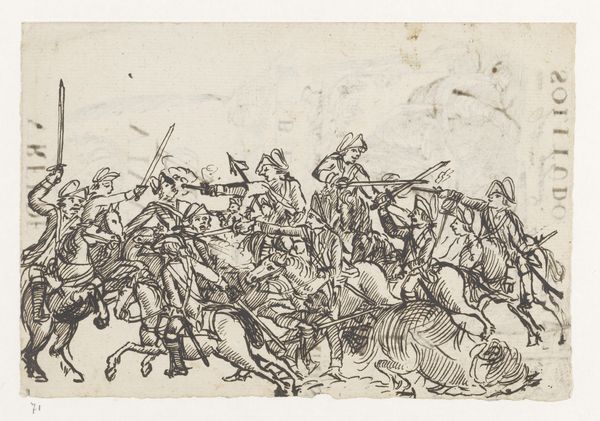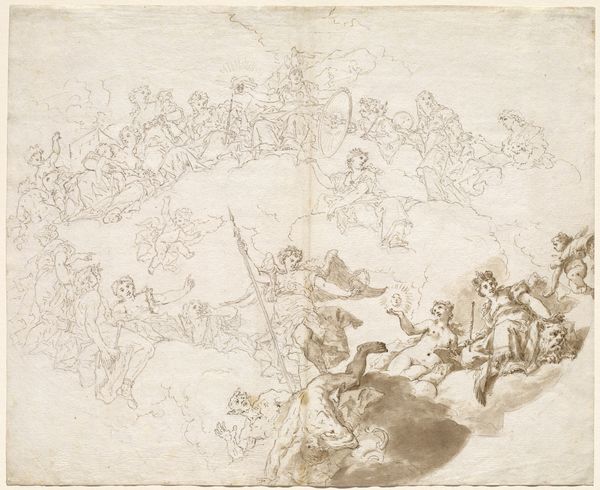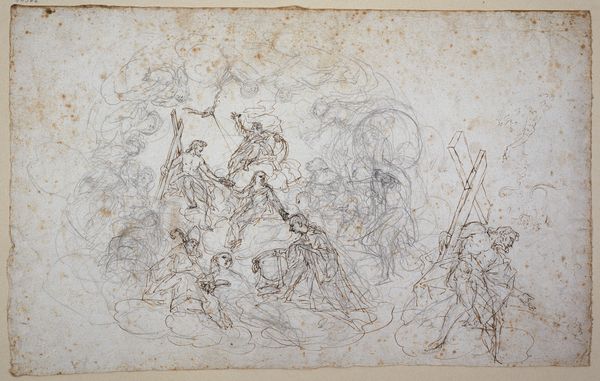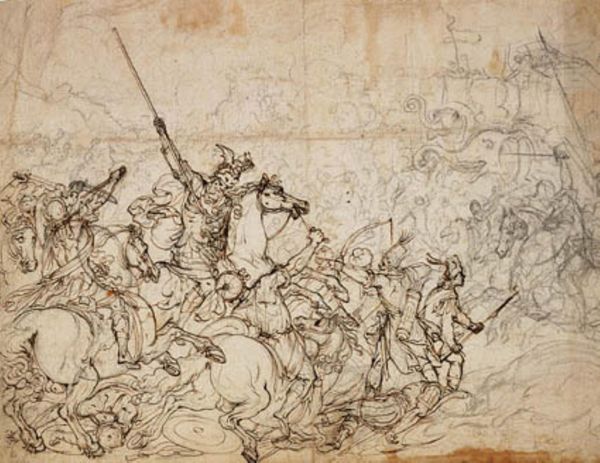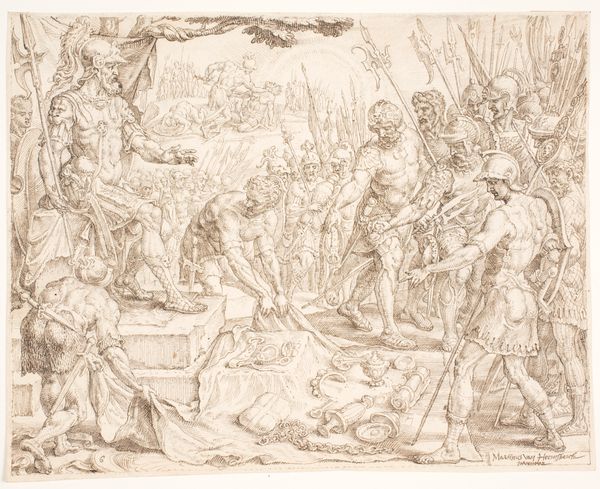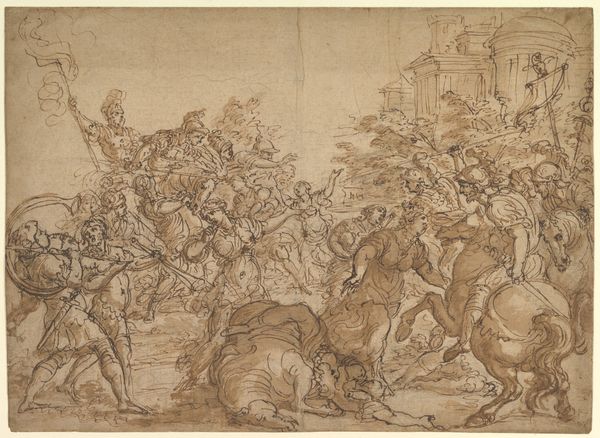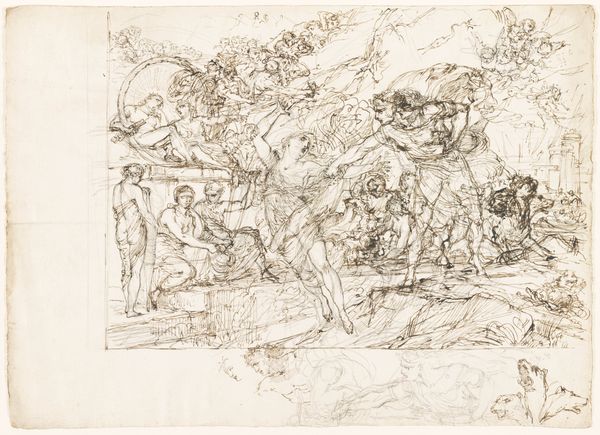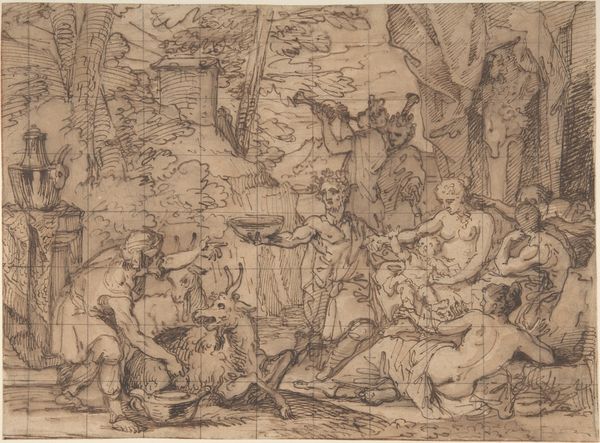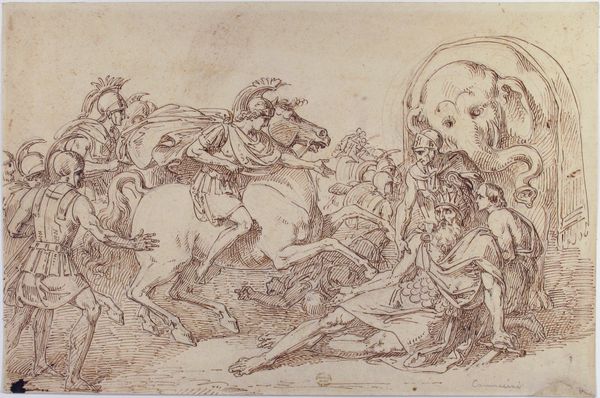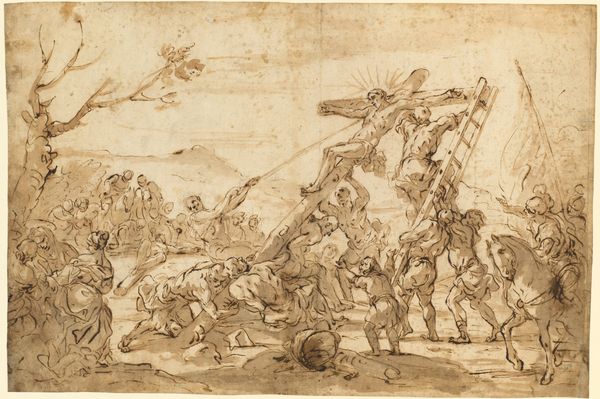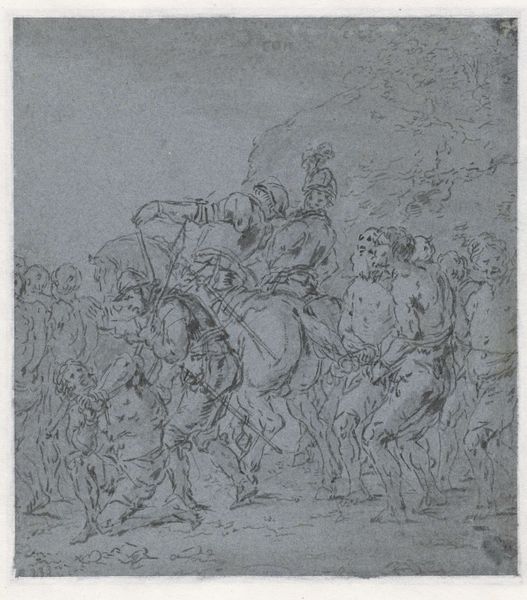
drawing, gouache, ink, pencil
#
drawing
#
baroque
#
pen sketch
#
gouache
#
pencil sketch
#
landscape
#
mannerism
#
figuration
#
ink
#
pencil
#
history-painting
Copyright: Public Domain
Editor: Here we have "The Battle of Alexander at Issus," a drawing in ink, pencil, and gouache by Pietro da Cortona. There's such a frenetic energy to it, figures collapsing and horses rearing. It looks almost like a chaotic tapestry. What symbols stand out to you in this dramatic piece? Curator: The most potent symbol here is the chariot. Notice how it's positioned almost dead center, yet partially obscured by the chaos surrounding it. In many cultures, the chariot represents not just military might, but also rulership, divinity, and the soaring ambition of those who command it. Its presence speaks volumes about Alexander's aspirations and the impact of his campaign. But do you observe anything peculiar in the faces of those being trampled? Editor: Now that you mention it, there's a mix of fear, but also a sort of… resignation? As though they were anticipating this very outcome. Curator: Precisely. It brings into question the psychological toll of such conquests, doesn't it? The cultural memory attached to Alexander is complex; he's often depicted as a heroic figure, yet the image of a battlefield suggests violence and cultural upheaval. Even the materials used contribute. The ink and pencil sketches lend a raw, immediate quality. It’s like witnessing history unfold. Editor: It’s as though the drawing captures both the glory and the brutal reality. The composition reinforces that, this tension between triumph and devastation. It certainly gives a new perspective to history painting! Curator: Yes, history remembered is often different from history as it truly happened, so what Cortona is showing us here might be that delicate tension. And our memories around figures such as Alexander, are rarely monolithic. This is something I find endlessly interesting. Editor: Thank you, I’m definitely seeing the cultural symbolism now in a completely new way. I appreciate you walking me through the multiple ways that it functions.
Comments
No comments
Be the first to comment and join the conversation on the ultimate creative platform.
